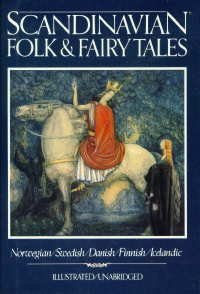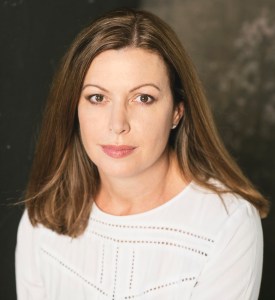Chrystyna LUCYK-BERGER is the author of the award-winning, RESCHEN VALLEY series, and this year she released a collection of short WWII stories called Souvenirs from Kiev, based on the lives of her relatives from Ukraine,
Starting on May 5th, Chrystyna’s new novel Magda’s Mark is featured in The Road to Liberation, a six-author collection of novels dedicated to commemorating the end of WWII.
Chrystyna is an American ex-pat living in Austria (yes, Austria in Europe – not Australia!) and apologises to the proper English speakers for her American “spelling” mistakes.

Thank you so much for joining me today, Chrystyna. You have an impressive list of novels now. Can you tell me about the time you decided you are a writer?
Chrystyna: I was in the second grade and Mrs Sharon Davis “made” us write stories. Around Halloween, she told us to write a ghost story. At that time, I was really into haunted house and ghost stories – I was reading way above my level and things that were probably not really meant for a 7-year-old.
I compiled a hodgepodge of impressions (read: I plagiarized) and on the day, we were all told to sit in a circle on the floor. One kid after another stood up and read their “paragraph” to us. I tried to pay attention, but everyone was bored, and squirming, and poking at one another and giggling about this and that. You know how it is? Then Mrs Davis called my name.
I stood up with about six sheets in my hands. I saw her raise her eyebrows; I saw the jawline tighten. I was really nervous – chunky kid, glasses, a nerd, really – but I stood up and started “telling the tale” so to speak. A minute or so into it, I realized something was really wrong. It was quiet; absolutely silent in the room. When I looked up from my story, I saw everyone – including Mrs Davis, her face beaming full of pride – was paying attention. I went home and told everyone I wanted to be a writer when I grew up.
That’s brilliant! What a great story. You obviously have a great imagination, but how much research is involved in your writing?
I write historical fiction and so I do a lot of research. I read somewhere that a historical fiction writer reads an average of 35 books before they’re done with one novel. That sounds about right. My mother is a history buff. She’s now involved in my research: she prepares the research for my history and culture blog and she does all the groundwork for my new books now.
A lot of my invested time (and money!) is spent visiting the settings in my books as well. So, for the Reschen Valley series, only for the purposes of writing the six books, I’ve been in South Tyrol probably fifteen or sixteen times. I travelled to Ukraine and lived in Poland while writing the Ukrainian stories. For Magda’s Mark, I just managed a trip to the Czech Republic and the town of Litomerice before the Corona shut-down. I hope to go again before we republish the book as a standalone. It needs another gust of Czech wind in there.
How wonderful to visit all those places. I hope we can all travel again soon. How do you deal with plot holes – if you ever have any!
I plot these days and still I manage to get stuck because I have a tendency to overcomplicate things. This is something very true about my nature, period. I’ve been fighting hard to simplify, simplify, simplify in all aspects of my life. It’s working pretty well for the most part; I chalk it up to über-50 wisdom. However, when I’m writing intensely I can still get tangled up in the weeds. My husband is my sounding board and 90% of the time he is the reason I get unstuck.
I love a handy husband! What’s your writing goal for the next twelve months?
It’s insane, really. I’m actually “writing” four horses across the river at once. I’m rewriting the first half of the next Reschen Valley installment and still have to draft the second half by mid-July; I’ve got some smaller rewrites to do on Magda’s Mark before it gets published as a standalone (some of my readers have already begged for an expansion of the story); I have another WWII novel forming in my head; and the last installment of the Reschen Valley should come out sometime next year, too. And then? I’d love to tackle my 16th-century Ottoman series that I plotted in 2017!
Wow, I think you need to be locked down to get all that done! What do you think about covers, and do you have any say in yours? I think they are wonderful.
I might have the most remarkable and unique relationship to a cover designer out there. Ursula Hechenberger-Schwärzler was one of my first trainees when I started to doing corporate trainings in Austria. She and her colleagues became my first friends here. She was working as a graphic designer, then left for Australia to do her master’s in photography. When she returned, I hired her to do the branding for my company and she’s been working for me since and is also one of my dearest friends. When I decided to go Indie, I asked whether she thought she might be able to design my book covers. We did everything: research trip to study English book covers in Zurich bookstores, storyboard for the Reschen Valley series, costuming, finding the models, photo shoots, coming up with the final titles, everything. She happened to travel to Ukraine to work with a dog sanctuary and had photos of Kiev available when I put out Souvenirs. She went to the Czech Republic with me for Magda’s Mark and we spent almost a week together as she shot scenery and architecture and I did my historical research. She’s so fully invested in the projects!

That’s wonderful. What a great partnership. Where do you write?
Four years ago, my husband and I finally moved into our dream house. Some people would balk: we live in the mountains of Austria, in the middle of woods and field, on a hiking trail. We bought a holiday home where we live year-round. Our heating is a tiled oven, we have a huge outdoor area where we practically live half the year, and we renovated the hut in a way that the walls and ceilings never feel as if they are about to crash around us. We have learned to live more simply, get by with a lot less, and to simplify (remember, it’s my motto). I work from my office or in the garden or in the Stube, the traditional Austrian “living area”. I also run a coaching and training business, where I teach business communication courses and do consultations, so I actually do go out and mingle with people. I need that as much as I need my peace and quiet. It’s a great balance!
That sounds wonderful. Do you send out newsletters to readers?
I do! I have three segments: a Morning Coffee with Chrystyna that goes out once a month and provides an update and more personal view of me and my work. Then a Free-Books Fridays segment that goes out once or twice a month depending on the cross-promotions I do with other authors. And there is a Historical and Cultural Background segment that deals with some aspect of my WIP or most recent release. I have also done author interviews in these segments, which you were a part of last year featuring your novel, Stars of the Night.
Yes, I remember gratefully. And readers can sign up for these goodies at your website, using this link. I’ve signed up just now.
The Road to Liberation Collection (featuring Chrystyna’s story Magda’s Mark) was released on May 5th and the ebook is only 99 cents until May 11th. It’s a great deal for six novellas in one book.
Chrystyna’s Social Media Links
Facebook: www.facebook.com/inktreks
Twitter: @ckalyna
Goodreads: https://www.goodreads.com/
Subscribe to her Newsletter: https://www.subscribepage.com/
Homepage: www.inktreks.com
Reschen Valley Box Set
https://www.books2read.com/u/
Souvenirs from Kiev
Road to Liberation (Featuring Magda’s Mark)





















 I wanted to give you the response of my very political character in
I wanted to give you the response of my very political character in 

 That sounds awesome, Gillian. Finally: Who would you be if you were a fictional character – one of yours, or someone else’s?
That sounds awesome, Gillian. Finally: Who would you be if you were a fictional character – one of yours, or someone else’s?